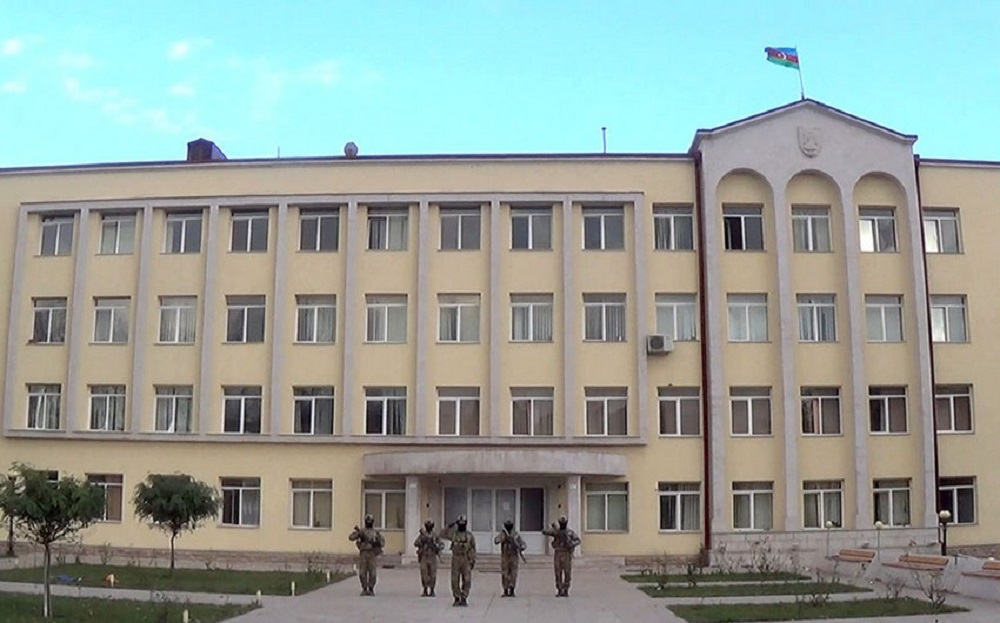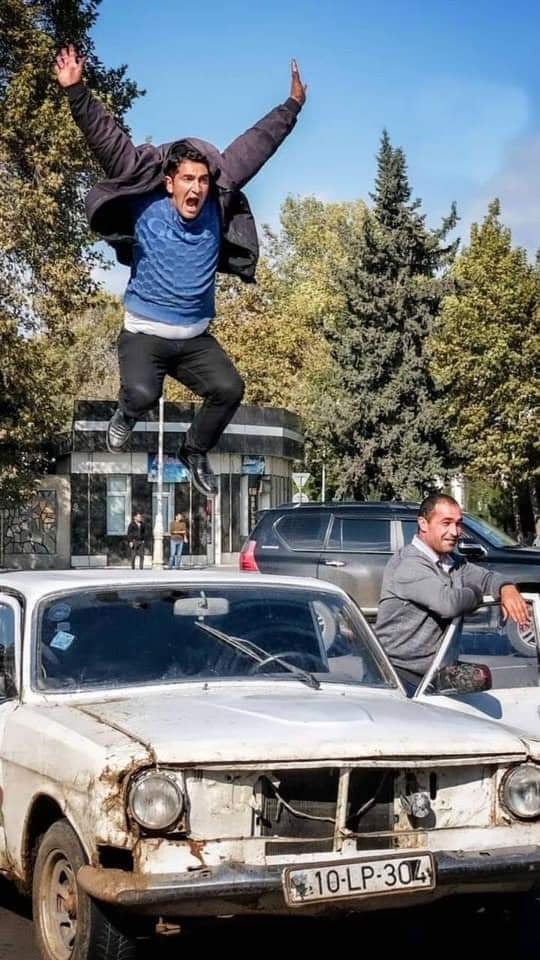Why did the second Karabakh war happen? Comments and vox-pop from Azerbaijan
Exactly a year ago, on September 27, 2020, the second Karabakh war began. For 44 days of bloody battles, about 7,000 soldiers from both sides, as well as dozens of civilians, were killed. Why did the war start, could it have been avoided, is Azerbaijan, which is considered a winner, satisfied with the results of the war, and is a new war possible in the region?
Political observer Agshin Kerimov and military observer Asaf Kuliyevas well as residents of Baku on the possibility of a new war between the parties tied to answer our questions.
- Ilham Aliyev: Azerbaijan is ready to start negotiations on peace agreement with Armenia
- PM of Armenia: Karabakh conflict cannot be considered settled
- Op-ed: why is Azerbaijan closely following Armenian media?
Could the second Karabakh war be avoided?
Agshin Karimov:
“In order to avoid the second Karabakh war, it was necessary to correctly formulate a peaceful settlement model and eradicate elements of a threat to the territorial integrity of Azerbaijan in this model.
But the formulas proposed for the peaceful settlement of the conflict did not satisfy Azerbaijan, then the question of status was raised, then attempts were made to involve the separatist regime in negotiations as a third party.
The negotiations only promised stagnation for the existing status quo. Armenia was gaining time, and each time, having come to its senses a little, immediately resorted to provocations against Azerbaijan.
When the negotiations reached an impasse, the situation had come to a deadlock, there was no alternative for Azerbaijan, and, therefore, during the ceasefire period, Baku was gradually preparing for war.
The second Karabakh war was the inclusion of the self-defense reflex of Azerbaijan, i.e. even if it was an operational counterattack, it was inevitable to protect the future of the country”.
Asaf Guliyev:
“Although the 44-day battles were undesirable, they were also inevitable.
It was undesirable because it meant 3,000 casualties and inevitable because the alternative routes were not effective.
The war was not a goal for Azerbaijan, but means to an end. A means to return its native lands.
The Armenian side did not believe that Azerbaijan would take such a step. I absolutely didn’t believe it. It is for this reason that I have made statements aimed at internal audiences. And this, albeit indirectly, created an incentive for Azerbaijan. It is thanks to these pretexts given by the Armenian establishment that Azerbaijan did not feel international pressure during the 44-day war. Ilham Aliyev skillfully seized this chance at the right time and brought Azerbaijan to his goal. Of course, with reservations.
In order for there to be no war, the Armenian side had to believe that it could happen. If they believed it, of course, they would have taken the necessary steps”.
Is Azerbaijan satisfied with the results of the war?
Agshin Karimov:
“The general results of the second Karabakh war satisfy Azerbaijan, although there are still open questions and Baku is voicing them.
With regards to the complete military victory in the war, I have a slightly different angle of view on this. Yes, on November 8, having liberated Shusha, Azerbaijan gained a great strategic advantage over the Armenian forces and the capture of Shushi made the defeat of Armenia inevitable.

But ahead was the liberation of territories with very difficult, mountainous relief – Kelbajar, Lachin, the center of Agdere (the Armenian name is Mardakert). Aghdam could have already been liberated relatively easily because there were conditions to enter Aghdam not from the line of contact, but from the direction of Shushi. And the capture of Khankendi (Armenian name – Stepanakert) was decided.
Azerbaijan was confident in the final victory by military force, but it is difficult to say how long this could last. The risks of operations were too great, especially in the directions of Kelbajar and Lachin. And the end of the war on November 10 gave good results: Kelbajar, Lachin and Aghdam were liberated without a fight. Only if these areas were not returned, we could talk about the unsatisfactory results of the war. But the opposite happened!
Taking into its own hands the tactical and psychological superiority on the battlefield, Azerbaijan achieved the return of these territories without loss.
As for the territories under the control of the Russian peacekeepers, Azerbaijan gave the Armenian armed forces time to liberate these territories in a maximum of 5 years. In short, the return of Khankendi, the center of the Khojavend (Armenian name – Martuni) region and Khojaly is left to the diplomatic stage. And Azerbaijan at the negotiating table is strengthening every day, both from an economic point of view, and from a political point of view. By signing the trilateral statement, Azerbaijan certainly took into account all these risks and the course of events proves this thesis.
Azerbaijan won in a complete military victory over Armenia, but due to the remaining open questions, this cannot be called a complete political victory. Some problems are created by these very open questions and actions of Russian peacekeepers, which go beyond their mandate and range of functions. But hopes are growing that these issues will be resolved over time. Because in the diplomatic period Baku also uses psychological methods, which gives effective results”.
Asaf Guliyev:
“Of course, the liberation of the Azerbaijani territories, and especially the city of Shusha, which was never among the discussed issues at the talks, is a great achievement.

But as a result of the war, the most serious consequences appeared: firstly, the gap between the two peoples deepened even more. Secondly, Russian troops entered Karabakh, and today in the part of Karabakh where Armenians live, absolute power belongs to the Russian army. There, neither Azerbaijan nor Armenia have any opportunities to influence the current situation. Of course, this plays into the hands of Armenia, but if you think about tomorrow, the Russian army in Karabakh is equally a source of danger for both Azerbaijan and Armenia.
As for the complete military victory of Azerbaijan, the only factor that prevented this was Russia. It prevented complete victory”.
Is another war possible?
Agshin Karimov:
“The war with Armenia seems unrealistic, even if there are some military operations, it cannot be called a war. The maximum can be local operations – if Armenia does not fulfill the conditions of the statement of November 10.
Armenia does not currently own the resources for the war, plus the war requires allies. In the post-war period, Azerbaijan has further strengthened its ties with allies and I can even say that at present a policy is being pursued with an eye to allied relations with such a state as Great Britain”.
Asaf Guliyev:
“Of course, now the war between Azerbaijan and Armenia is unrealistic. Because this would be a serious blow to the prestige of Russia. But in September 2020, the war also seemed unreal. Despite this, it happened. And she still hasn’t put an end to the conflict.
If there is a conflict situation, then there is a possibility of its change in any direction”.
JAMnews addressed the residents of Baku with one question: “Do you believe in the possibility of a new war between Azerbaijan and Armenia?”


















